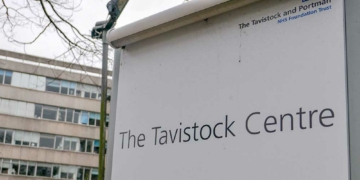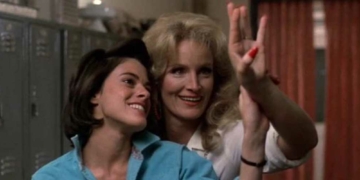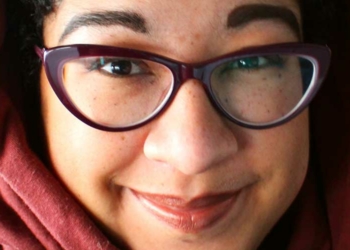Anybody who lived through the Kennedy assassination can tell you where they were when they learned that JFK died. I learned this from my grandparents; my grandmother is still fond of telling her JFK story. As a child, I found it a morbid remembrance. And in more recent years I bristled against the Americentric expectation that something which happened in US history held universal significance. But now I find myself floored by the passing of an African-American woman I have never met, though often thought of: bell hooks. She was an activist, an author, and an educator who imagined feminist futures that felt full of possibility.
I found out that bell hooks had died when (story of my life) I should have been writing, but was instead sneaking a peek at my phone. FiLiA’s Lisa-Marie had messaged me, and I half-wondered if it was something to do with Labrys Lit. But it was a message of condolence.
My heart stuttered. I checked Google, willing it not to be true. But the tributes were pouring in. And hooks’ Wikipedia page had already been edited to include the date of her death: December 15th 2021. I sometimes wonder about the people who race to update Wikipedia whenever a person of note has died. There is something indecent about that haste, like the sale of Ebenezer Scrooge’s bedcurtains and blankets. It’s as though we’re being rushed through denial, anger, bargaining, and depression straight over the finish line of acceptance.
bell hooks – a woman who radically altered the direction of my life without ever knowing I existed – is gone. And I’m grieving. Perhaps it’s foolish, but I had hoped that some day we might meet so that I could thank her. When I first found the feminist community, I was desperate to belong. So, when white women side-lined or delegitimised conversations about race, I accepted it as the price of admission to sisterhood. Growing up the only Black child in a white family was a masterclass in learning not to talk about race; ignoring the discomfort of racialised dynamics. But reading bell hooks transformed me.
Her analysis put into words things I had barely acknowledged experiencing. She saw the connection between patriarchy and white supremacy; how they were twin pillars propping up the same rotten system. Reading bell hooks, I went from a feminist-who-happened-to-be-Black to a proud Black feminist.
Yes, Britain has its own rich Black feminist community, history, and thought. No, we don’t always have to look to America. But bell hooks was a vocal opponent of all the hierarchies that led to US hegemony. She invested a lifetime’s worth of thought and energy into showing people what this world could look like if mutual respect – as opposed to domination or control – was at the centre of human relationships. And the world feels that much dimmer without her.
bell hooks – a woman who radically altered the direction of my life without ever knowing I existed – is gone. And I’m grieving. Perhaps it’s foolish, but I had hoped that some day we might meet so that I could thank her.
But what an incredible legacy she has left us; forty books, filled with her insight, integrity, and courage. hooks was a prolific author. As such, she also revolutionised my approach to writing. Through reading her work, I came to understand that there’s real skill in taking complicated ideas and theories and presenting them in a way that people can easily understand.
I remember in Higher English (like A-Levels but Scottish) we were taught that the purpose of an essay was to show off how much we knew about the books we had read for the examiners. But bell hooks taught me that words build a bridge of understanding between author and reader, over which ideas and empathy may travel.
That one of the great political thinkers of our era chose to write in a way that prioritised accessibility over performing her intellect came as a revelation. Instead of serving a Butlerian word salad with every book or essay, hooks prioritised the reader’s interests over her own ego. This in itself was a valuable feminist lesson. I began to think consciously about my intended audience – which people I would be performing for, and which people would be shut out if I chose to go down that path.
bell hooks has taught me so much about how to live feminist politics in every sphere of life. She taught me about how and why we write. She even taught me new ways of loving and relating to other people. Her work contains countless lessons – and people around the world will continue to learn from hooks, long after her death. To carry such influence beyond the grave is the closest any of us can ever come to immortality. And hooks has more than earned it.
Though hooks described her sexuality as “queer-pas-gay”, she is more often recognised as a Black or feminist icon than a gay one. Yet her work consistently challenges heterosexuality as an institution. And hooks herself was very much a woman-identified-woman. She championed lesbian feminists against the homophobia of one of the biggest names in the women’s liberation movement; wrote about lesbian feminist consciousness with greater insight than any outsider could ever muster. Therefore, bell hooks deserves to be remembered with pride by this community too.
Claire Heuchan is an author, essayist, and Black radical feminist. She writes the award-winning blog, Sister Outrider.
Photo: The bell hooks Institute
























Comments
No comments yet, be the first to leave a comment.